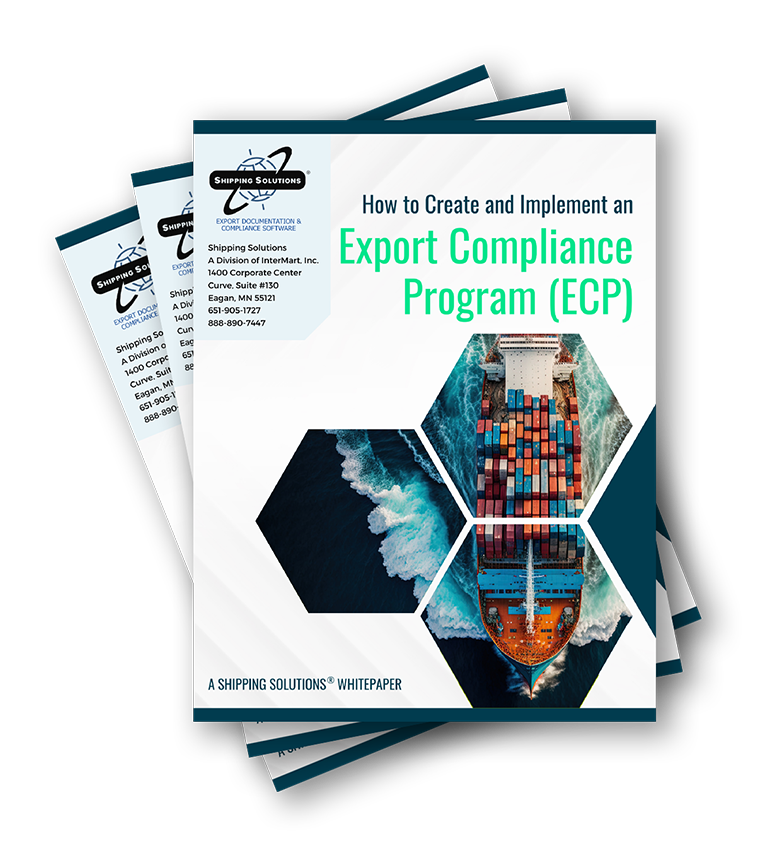The International Trade Blog Export Compliance
Exporters, ITAR and the Empowered Official
On: June 26, 2019 | By:  David Noah |
4 min. read
David Noah |
4 min. read
 The International Traffic in Arms Regulations (ITAR) require that companies appoint one or more empowered official to oversee ITAR-related activities.
The International Traffic in Arms Regulations (ITAR) require that companies appoint one or more empowered official to oversee ITAR-related activities.
Before a company can do that, however, they need to understand exactly what an empowered official (EO) does and who can fit that role. And both the company and the person or people who fill that role need to understand the potential liability for their actions.
The Role of an Empowered Official
The Y-12 National Security Complex, a U.S. Energy Department facility, defines an empowered official this way:
An empowered official is authorized by a business enterprise to sign and process license applications on behalf of the company. An empowered official understands the provisions of ITAR. This individual has the authority within his/her company to inquire into any aspect of a proposed export and to verify the legality and accuracy of the information submitted for a transaction. An empowered official also has the authority to refuse to sign any license application without retribution from his/her company. This is important because an empowered official is held liable for any violations of ITAR.
Being an Empowered Official is not a “paper-pushing” administrative job, but a position which requires detailed substantive knowledge of the International Traffic in Arms Regulations and the Arms Export Control Act. The position carries within it liability for both the company and the individual—a liability which emphasizes the need for an experienced, well-trained and competent official.
Requirements to Be an Empowered Official
If you are a U.S. manufacturer and exporter of defense articles, you are required to register with the U.S. State Department’s Directorate of Defense Trade Control (DDTC) and to renew your registration annually. As a registrant, you are required to appoint one or more empowered officials to oversee your company’s ITAR-related activities.
Section 120.25 of the Code of Federal Regulations outlines the following requirements of an empowered official:
(a) Empowered Official means a U.S. person who:
- Is directly employed by the applicant or a subsidiary in a position having authority for policy or management within the applicant organization; and
- Is legally empowered in writing by the applicant to sign license applications or other requests for approval on behalf of the applicant; and
- Understands the provisions and requirements of the various export control statutes and regulations, and the criminal liability, civil liability and administrative penalties for violating the Arms Export Control Act and the International Traffic in Arms Regulations; and
- Has the independent authority to:
- Inquire into any aspect of a proposed export, temporary import, or brokering activity by the applicant;
- Verify the legality of the transaction and the accuracy of the information to be submitted; and
- Refuse to sign any license application or other request for approval without prejudice or other adverse recourse.
If you’re not sure whether or not you (or someone else at your company) should be the empowered official, you can learn more in our article, Export Documentation Requirements: Who Should Sign Your Documents.
The EO must be in a position of authority for policy or management within the company and must understand export control statutes and regulations as well as the potential civil, criminal and administrative penalties that can result from export violations.
Failing to Appoint a Qualified Empowered Official
Case Study: Darling Industries
In early 2019, DDTC found that R.E. Darling, a Darling Industries subsidiary, failed to appoint a qualified empowered official. The company, a rubber and composite products manufacturer and exporter whose products include articles subject to control under ITAR, was fined $400,000 and required to take other remedial steps, including a mandatory external compliance audit.
In the case of Darling Industries, “the EO ‘did not understand the provisions and requirements of the various export statutes and regulations.’ The Darling consent agreement makes clear that DDTC-registered companies must appoint EOs with adequate authority and export-related expertise, and cannot satisfy their obligations under the ITAR merely by designating an employee as an EO in title only.” (Un-Empowered Official: Department of State Fines Exporter for Unqualified EO)
This mistake (among others) cost the company hundreds of thousands of dollars, but it could have been worse—violators of ITAR can potentially face fines and penalties up to $1 million and incur jail time for each violation.
As previously mentioned, if your company deals in ITAR-controlled items, you are required to have an empowered official. And while not required, it is a good idea for EAR-controlled items as well, so you can protect yourself and your company from unnecessary risk.
Complying with the ITAR Empowered Official Requirement
There are several basic steps companies should follow to ensure compliance with ITAR and the empowered official requirement:
- Make sure the person you have signing meets the requirements of the empowered official as outlined above.
- Make sure the EO knows to consult the legal counsel or legal department at your company when questions about compliance arise.
- Add your empowered official(s) to your company’s Export Management and Compliance Program (EMCP).
- Make sure you follow your EMCP for every export shipment. It’s just as important that you document you’re following your EMCP so that if you get audited by DDTC you have proof that you are meeting your obligations under the regulations.
Unfortunately, DDTC doesn’t provide much help to companies in training their employees in the role of empowered officials, but there are training companies, consultants, and law firms that will fit that gap.
In addition, export software like Shipping Solutions will help companies implement and track their export compliance procedures, whether they are focused solely on ITAR or also include the Export Administration Regulations (EAR). To see how Shipping Solutions can help, sign up now for a free online demo of the software.
Like what you read? Subscribe today to the International Trade Blog to get the latest news and tips for exporters and importers delivered to your inbox.

About the Author: David Noah
As president of Shipping Solutions, I've helped thousands of exporters more efficiently create accurate export documents and stay compliant with import-export regulations. Our Shipping Solutions software eliminates redundant data entry, which allows you to create your export paperwork up to five-times faster than using templates and reduces the chances of making the types of errors that could slow down your shipments and make it more difficult to get paid. I frequently write and speak on export documentation, regulations and compliance issues.


